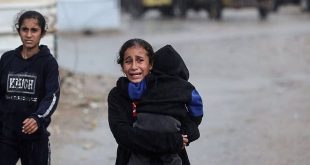Unfortunately, some people who are unaware of history, view the 4th Infallible (‘a) as the ‘Sick Imam’. They have a mental image of him as being physically pale and sickly, while psychologically they think of him as being depressed and forever gloomy.
The reality is far from this, for the Imam (‘a) was only ill for a short period of time during the tragedy of Karbala. He recovered quickly after ‘Ashura, and for a period of 35 years (just like the rest of the Imams (‘a)), he enjoyed full physical health and wellbeing.
Without doubt, the illness which the Imam (‘a) experienced was a form of divine favor. Through it, he became exempt from the duty of fighting[1] (due to his physical incapacity), and therefore, was protected from a certain death; through this, the line of the Imams (‘a) was allowed to continue. If the Imam (‘a) had not been bedridden with sickness, then it would have been incumbent on him to fight against Yazid and his soldiers, and without a doubt, he would have been martyred alongside his father and his companions. In this way, the line of the Imams (‘a) would have ended and the light of guidance for the Muslim world would have been extinguished.
Sibṭ ibn Jawzi has written: ‘Since ‘Ali ibn al-Husayn (‘a) was ill, he was not killed’.[2] Muhammad ibn Sa’ad has also written: ‘On that day (‘Ashura), when ‘Ali ibn al-Husayn (‘a) was with his father, he was either 23 or 24 years of age. Whoever says that he was a child during this time, has no basis for saying such a thing. He was actually ill on that day, and due to this, he did not participate in the battle.’[3]
Ibn Sa’ad has also reported that: ‘After the killing of Husayn ibn ‘Ali, Shimr approached ‘Ali ibn al-Husayn (‘a), while he was ill and bedridden. Shimr said: Kill him. One of the companions of Shimr said: Glory be to God, shall we kill a young man who is both ill and has not participated in the battle? At this time, ‘Umar ibn Sa’ad arrived and said: Leave the women and this sick one alone.’[4]
Shaykh Mufid has narrated from Hamid ibn Muslim, who was one of the soldiers of Yazid, that: On the day of ‘Ashura, we arrived at the tent of ‘Ali ibn al-Husayn; he was exceedingly ill and bedridden. Shimr came with a group that was unmounted, and said to me: Are you not going to kill this sick one? I responded: Glory be to God, do you also kill children?[5] This is a child and he is ill; his illness is going to kill him…I continued with a few similar words, until I changed his mind from killing him. At this time ‘Umar ibn Sa’ad came. The women shouted at him and they cried. He told his soldiers: None of you can enter the tents of these women and do not disturb this sick youth.[6]
The illness of the 4th Imam (‘a) was clearly due to divine expediency, and through it, his life was saved. The illness itself does not entail psychological or spiritual weakness. In clear contradiction to this idea, during the time of the captivity of the survivors, the Imam (‘a) was a beacon of hope and a source of strength for them. He also faced the enemy with bravery and courage and his sermons in both Kufah and Syria are clear evidence of this reality.
After the captives were sent to Kufah, Imam Zayn al-’Abidin (‘a) exchanged some harsh words with ‘Ubaydullah Ibn Ziyad in his court. ‘Ubaydullah became enraged and ordered that the Imam (‘a) be e x e c u t ed. The Imam (‘a) replied to this by saying: Do you threaten me with death? Do you not know that being killed is an ordinary affair for us, and martyrdom is an honor and distinction?[7], [8]
————————————————————————————————————————–
References
[1] Mas’ūdī, Ithbāt al-waṣīyah, Fourth Edition, Najaf, al-Maṭba’at al-Ḥaydarīa, 1373 Hijrī Qamarī, p. 167. In addition, refer to: Sibṭ ibn Jawzī, Tadhkirah al-khawāṣ, Najaf, Manshūrāt al-Maṭba’ah al-Ḥaydarīa, 1383 Hijrī Qamarī, p. 324.
[2] Sibṭ ibn Jawzī, Tadhkirah al-khawāṣ, Najaf, Manshūrāt al-Maṭba’ah al-Ḥaydarīa, 1383 Hijrī Qamarī, p. 324. In addition, refer to: Ibn al-I’mād al-Ḥanbalī, Shadarāt al-dhahab fī akhbār min dhahab, Beirut, Dār al-Fikr, vol. 1, p. 105.
[3] Thabaqāt al-kubrā, Beirut, Dār Ṣādir, vol. 5, p. 221.
[4] Thabaqāt al-kubrā, p. 212 and also refer to: Ibn Kathīr, al-Bidāyah wa al-nihāyah, al-Ṭab’at al-Thānīyah, Beirut, Dār al-Ma’ārif, 1977 A.D., vol. 9, p. 104.
[5] It is possible that Ḥamīd ibn Muslim called the Imam (a) a child in order to bring about feelings of mercy in the soldiers. It is also possible that he attributed such words to himself in front of the Shias, in order to lessen his sinful share of what had taken place.
[6] Shaykh Mufīd, al-’Irshād, Qum, Maktabah Baṣīratī, p. 242. In addition, refer to: Muḥammad ibn Jarīr Ṭabarī, Tārīkh al-umam wa al-mulūk, Beirut, Dār al-Qāmūs al-Ḥadīth, vol. 6, p. 260; Akhtab Khawārizmī, Maqtal al-Ḥusayn, Researched and edited by: Shaykh Muḥammad Samāwī, Qum, Maktabah Mufīd, vol. 2, p. 38.
[7] Akhtab Khawārizmī, Maqtal al-Ḥusayn, Researched and edited by: Shaykh Muḥammad Samāwī, Qum, Maktabah Mufīd, vol. 2, p. 43.
[8] Taken from the text: Sīrah Pīshvāyān, Mahdī Pīshvāī, Mu’asasah Imam Sadiq (‘a), Qum, 1390 Hijrī Shamsī, 23rd Edition, p. 238.
 Ijtihad Network Being Wise and Faithful Muslim in the Contemporary World
Ijtihad Network Being Wise and Faithful Muslim in the Contemporary World
